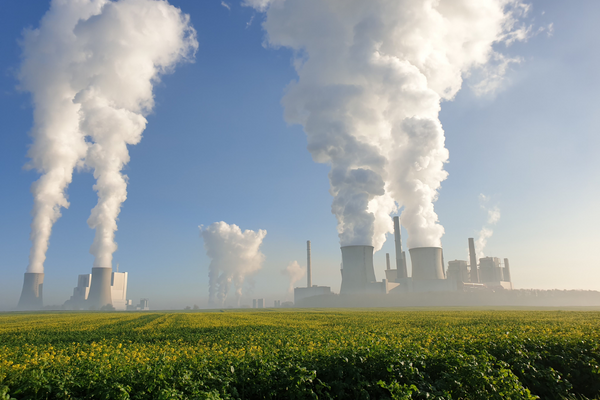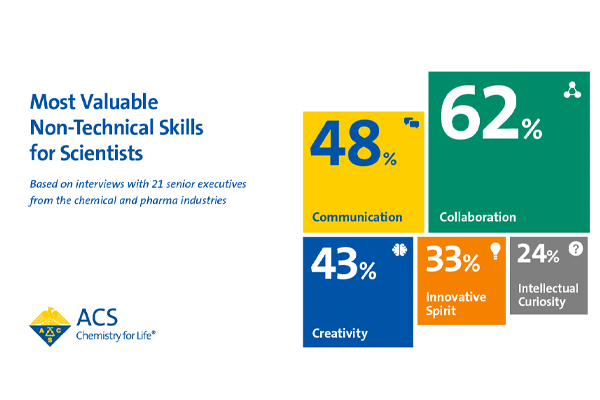
Key Takeaways:
- Thomas Faust shares his observations on how problems are approached by chemists vs. engineers
- How a trip to a lab as a grad student set Faust on the pathway to work for the national lab
- Faust describes the challenges associated with driverless cars
With a BS, ME, and PhD in mechanical engineering, how did you supplement that technical expertise with the necessary management and executive leadership skills to obtain your position as Director of the National Renewable Energy Laboratory’s National Bioenergy Center?
I realized very early in my career that I was attracted to the challenges of management and leadership and was informed by many early mentors and managers that I had a good aptitude for leadership. Thus, I applied and was accepted to a fairly large number of leadership development programs, both university and professional programs, over the course of my career. I found these programs to be invaluable in giving me needed leadership and management skills since these skills are not typically taught in the technical disciplines.
How did your parents influence your leadership style?
Both of my parents gave excellent advice and counsel to my sisters and me that it is very important to find a career path that is exciting to you and that you are good at. Initially for me this appeared to be a career in engineering but as I progressed in this career I found myself drawn to scientific/engineering research and then research leadership. I have always enjoyed this career path so I have my parents to thank for their advice and counsel and it has served me well.
You took some time off between each of your degrees (BS in 1988, MS in 1994, PhD in 2004), and worked while going to school. How did you balance career and school responsibilities? If you had to do it over, would you take a similar approach?
The engineering job market was very good in the late 80s so I thought it would be best if I got an engineering job prior to continuing on to graduate school and my initial intent was only to work for a year or two.
I quickly got very engrossed in my first engineering job and a year or two turned into 4 years, but in 1992 I knew I needed to leave the workforce full time and continue with my education. I have always somewhat had the problem of “biting off more than I can chew” so while pursuing my Ph.D. I performed a number of side projects and temporary work assignments.
While it ultimately worked out well and these experiences served me well, in retrospect I probably should have stayed more focused on completing my PhD in a timely manner.
What observations have you made over the years in how chemists think and approach problems vs. the approach taken by engineers?
My take on this tried and true question of the difference between chemists/biologists and chemical engineers are chemists are more motivated by the underlying principles of how it works, and engineers are more motivated by, “Will this new chemical approach solve a real world problem and enable a better way of doing things?”.
As I have progressed in my career I have really learned to appreciate the value of both. Although I have always stayed true to my engineering roots in that I am always motivated by a better way to do things or solve real world problems, I have really developed an appreciation to the value of understanding the underlying chemical and biological principles.
What motivated you to work for a national lab as opposed to seeking a position in academia or industry?
My first exposure to the national labs was when I was a graduate student and I went to Sandia National Laboratory for a project meeting. They were gracious to give us graduate students a tour of the facilities and I remember being awestruck with the capabilities, the facilities and the excitement of the people we met on the tour. This really made a lasting impression on me and I always thought from that point onward that the national laboratories would be a place I wanted to work.
I stayed true to this initial impression and have been in the national laboratories my entire career and have always been happy with this career decision. Recently I became a joint appointment Professor at Colorado State University in addition to my position at NREL and find this equally gratifying. There is a really good synergy between academic positions and national laboratory positions.
What is the greatest technology/scientific challenge associated in developing advanced biofuels? And which is the greatest non-technical challenge confronting the development of advanced biofuels?
Developing advanced biofuels (hydrocarbon fuels that are drop-in replacements for gasoline, diesel and jet fuels) face considerable technical/scientific challenges over ethanol. While ethanol is a thermodynamically and biologically preferenced product from biomass, advanced biofuels that do not contain oxygen in the product are not.
Manipulating biological or thermochemical processes to produce an advanced biofuel at high yields, high carbon efficiencies and economically competitive conversion costs is a major scientific challenge. Although tremendous progress has been made in the last decade or so towards this goal there are still some technical challenges that need to be overcome.
As far as the greatest non-technical challenge, that is probably the volatility of the fuel market. The fuel market has seen great swings in prices, supplies versus demand and the perceived need for biofuels in the fuel marketplace. This in turn has led to considerable swings for market prices for biofuels as well as policy incentives. This market and policy inconsistency has greatly complicated the path for advanced biofuels entering the market in significant volumes.
The advanced biofuels you are pursuing presumably would have clear environmental impact advantages over those associated with ethanol. Do you project they will have other advantages? For example, in the areas of price or performance?
The complete answer to this question is complicated and multifaceted but the short answer is it depends. Advanced biofuels do have infrastructure advantages over ethanol, and they have higher energy content than ethanol. However, ethanol does have very high-octane values specifically Research Octane Number (RON) and very good charge cooling effects which have benefits for higher efficiency, lower emitting spark ignited engines.
Consumers and society - based on the desire for lower transportation costs and clean air - are demanding higher efficiency, lower emitting cars and trucks. This in turn is driving vehicle manufacturers to produce higher efficiency, lower emitting engines. Fuel properties are very critical to enabling the design and successful operation of these advanced engines and hence this provides a good opportunity for biofuels.
By thoughtful design and development of biofuels, fuel properties can be provided to enable advanced engines that provide the efficiencies and low emissions benefits desired by consumers and society.
Setting aside biofuels, and looking more broadly at the future of transportation, what’s the greater challenge associated with driverless cars? Getting the technology right, or the public policy?
I think the two are highly interrelated in that getting the technology right will drive public acceptance and ultimately policy. It is human nature to resist change and be skeptical of a new technology and a new way of doing things. Autonomous vehicles are a good example of this; there will be public resistance and distrust of this new technology and as we have already seen, huge press coverage and visibility of accidents that occur with autonomous vehicles especially when they result in the loss of human life. This will serve as reinforcement for those that resist this change to state their belief that the change is not necessary, and we should just stay with human driven vehicles.
I see significant potential for autonomous vehicles as well as electric vehicles to improve transportation by reducing costs and congestion while improving efficiency, convenience and air quality. Hence, I am a strong advocate of pursuing autonomous vehicles and electric vehicles but in a cautious and careful manner to minimize accidents -- especially ones that could result in the loss of human life. Although this approach will probably slow the development and adoption of autonomous vehicle technology, I think it is critical to achieving public acceptance of the autonomous vehicle technology.

Dr. Thomas Foust is the Director of the National Renewable Energy Laboratory’s National Bioenergy Center (NBC), a world leading organization of approximately 200 engineering and scientific staff performing cutting edge work to develop cost effective, environmentally sustainable technology for producing transportation fuels and products from biomass. He is also a Professor of Mechanical Engineering at the Colorado State University, a position he has held since 2017.
This article has been edited for length and clarity. The opinions expressed in this article are the author's own and do not necessarily reflect the view of their employer or the American Chemical Society.
Copyright 2019 American Chemical Society (All Rights Reserved)








